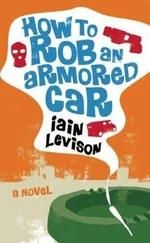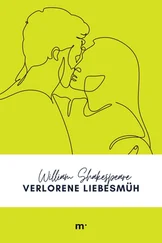Bragi Ólafsson - Pets
Здесь есть возможность читать онлайн «Bragi Ólafsson - Pets» весь текст электронной книги совершенно бесплатно (целиком полную версию без сокращений). В некоторых случаях можно слушать аудио, скачать через торрент в формате fb2 и присутствует краткое содержание. Год выпуска: 2008, Издательство: Open Letter, Жанр: Современная проза, на английском языке. Описание произведения, (предисловие) а так же отзывы посетителей доступны на портале библиотеки ЛибКат.
- Название:Pets
- Автор:
- Издательство:Open Letter
- Жанр:
- Год:2008
- ISBN:нет данных
- Рейтинг книги:5 / 5. Голосов: 1
-
Избранное:Добавить в избранное
- Отзывы:
-
Ваша оценка:
- 100
- 1
- 2
- 3
- 4
- 5
Pets: краткое содержание, описание и аннотация
Предлагаем к чтению аннотацию, описание, краткое содержание или предисловие (зависит от того, что написал сам автор книги «Pets»). Если вы не нашли необходимую информацию о книге — напишите в комментариях, мы постараемся отыскать её.
Pets — читать онлайн бесплатно полную книгу (весь текст) целиком
Ниже представлен текст книги, разбитый по страницам. Система сохранения места последней прочитанной страницы, позволяет с удобством читать онлайн бесплатно книгу «Pets», без необходимости каждый раз заново искать на чём Вы остановились. Поставьте закладку, и сможете в любой момент перейти на страницу, на которой закончили чтение.
Интервал:
Закладка:
“Guten Tag.”
Then he keeps quiet, much longer than he usually does on the telephone, and I imagine that the person on the other end of the line is explaining something to Havard, or takes all that time to introduce himself.
“In a little while?” Havard asks when he finally gets the chance to talk. “She is asleep then? Oh, really? And you are close by here? Yes, he must be coming home any minute now. Yes, yes, at least. . we’ll be here. I just say willkommen , madame.”
In other words it’s Greta. She’s tucked her daughter into bed, has probably had a shower, and is on her way over long before I myself am expected. I am rather surprised that Armann doesn’t ask who was on the phone and that Havard doesn’t mention it to him. No doubt he thinks of Greta as some surprise guest; he is about to treat Armann to an unexpected female visitor.
It is obvious that Armann has been thinking about something else while Havard was talking to Greta. As soon as the phone call ends, Armann points to something he wants him to look at and says:
“That’s a rather impressive mustache.”
I try to guess which mustache he is referring to. I imagine that he is pointing at the cover of a CD, book, or video, and when Havard says that no decent music can come from such a man, I feel reasonably sure that the man in question is Joe Zawinul.
“Why don’t we just carry on with Elvis?” Havard suggests.
“That’s up to you,” Armann says. “I wasn’t thinking of playing this, it was just the face that I thought was rather striking.” But he still seems to be thinking of the photo when he suddenly blurts out:
“There is nothing quite so ugly as a handsome man.”
“What?” I hear Havard say. “Nothing as ugly as a handsome man? Is he a handsome man?”
“I didn’t mean that man in particular,” Armann answers, and I suddenly see the Austrian pianist from a new, unexpected perspective; he has become a example of masculine good looks.
“But tell me, how can a good looking man be ugly?” I hear Havard fiddling with the CD player. “Am I ugly? Would you say I was ugly, for instance?
“I’m not deciding who is ugly and who is handsome. What I am trying to say is that. .”
“But I am asking you, Armann,” Havard interrupts. “Do you think I’m ugly?”
Armann hesitates for a few seconds and then says: “I think you harmonize quite well.”
“Harmonize!” Havard doesn’t think much of this remark; I have to ask myself what his comment means exactly. “What kind of answer is that, Armann! Does it maybe harmonize? Is it some new grammatical term?”
I have to admit that sometimes I am surprised at Havard’s expressions. Perhaps my low opinion of him has blinded me to his ability to express himself, an ability which is of course not confined to the “righteous.” If anything, it has more often been used, or abused, to obstruct the progress of righteousness; I consider myself to be a true spokesman for these virtues, at least compared to the misogynist, alcoholic, compulsive gambler, and, most recently, burglar Havard Knutsson (although he hasn’t stolen anything since he broke into my flat yet).
“What I was trying to tell you,” Armann begins to explain “is that the good looks of the handsome, that is of the most handsome men, very often work against them.”
“You’re talking about me, then!” Havard bursts out laughing.
“They are isolated by their own beauty, is perhaps a better way to put it,” Armann corrects himself. “Not only are their good looks worshipped by others, but they themselves become absorbed in their own admiration. They imagine that their beauty will transport them into some little paradise, but one day, when they are serving a teenager in a fashion shop, they suddenly realize in a flash that they won’t get any further; they have reached their peak, serving penniless teenagers in some fashion store.”
“No, Armann, now I think you’re treading on thin ice. Is there something wrong with working in a fashion shop? For instance, I bought these clothes today and the fellow who sold them to me was nothing spectacular; he wasn’t exactly what you would call Mr. Universe.”
“It’s a fine suit, I must admit, but I don’t think you understand me properly,” Armann replies. “Tell me something, my good. .? Havard, isn’t it? Sorry, I’m not very good at remembering names,” he says. “It is Havard, isn’t it?”
I don’t hear any answer and can’t quite make out what Havard is doing at the moment.
“But in every other respect I think I can state that I have the memory of an elephant,” Armann carries on. “I can remember the birthdays of all the important presidents and kings and, of course, when they died. I even think I remember when your friend Elvis Presley died.”
“Talking about elephants,” Havard interrupts, “Have you heard the joke about the elephant who stepped on an ant hill? Once upon a time there was this gigantic elephant who came tramping along the river bank.”
“Where was that?” Armann enquires, as if the place was of some importance.
“It doesn’t matter,” Havard says. “Let’s just say in India. Then, suddenly, as the elephant is about to have a drink from the stream, he steps on a little ant hill and naturally causes a great commotion for the inhabitants; half of them are killed and those who survive run off to save their lives.”
“Which they certainly do,” Armann adds.
“Then, while the elephant is drinking from the stream one ant climbs up his leg. .”
“Crawls up,” Armann corrects him.
“. . and a group of his friends. . that is friends of the ant who was courageous enough to crawl up the elephant until he got as far as the neck. Just imagine: an ant is only so big.”
I can just imagine Havard measuring out the size of the ant with his thumb and forefinger.
“And then, when the ant reaches the elephant’s neck,” he continued, “one of his friends down on the ground, who is crazy with excitement and thirsty for revenge, shouts: ‘Strangle him, Emil! Strangle him!’”
“What?” I hear Armann say.
“Strangle him, Emil! Strangle him!” Havard repeats.
I don’t know why the name Emil is included in the story, but it is probably because the ant had the same name when I heard the joke some time ago, in primary school. I suspect that the drink is to blame for how long it takes Armann to imagine the tragicomic ant on the broad neck of the elephant (if one can talk about the neck of an elephant). And then — rather quietly to begin with — Armann begins to laugh; he shrieks, like an old, worn out laughter box, it sounds like oil is thrown on a fire or new batteries put in the laughter box. He explodes and between fits of laughter repeats the final sentences of the joke over and over again. I begin to think that he is literally losing his mind, that his mental balance has been endangered by this joke, so that Havard — for the first time in his life — will have to face the consequences of his deeds. But Havard doesn’t seem capable of shouldering much responsibility at this point; instead of joining Armann’s laughter, he starts imitating the voice of the father in the TV series about Emil at Kattholt. He shouts “Emil!” just like the father shouted when his son had gotten into mischief and was running to lock himself in the woodshed. Havard doesn’t just shout once, he carries on almost as if his life depends on it.
I don’t quite know if I should laugh or worry; if someone came across the pair of them in the living room right now, they would be sure that both of them were absolutely mad.
“Here, do you think I may help myself to one of those?” Armann asks when he has almost recovered from his fit of laughter. Havard stops shouting abruptly and says yes, he should help himself if he wants one.
Читать дальшеИнтервал:
Закладка:
Похожие книги на «Pets»
Представляем Вашему вниманию похожие книги на «Pets» списком для выбора. Мы отобрали схожую по названию и смыслу литературу в надежде предоставить читателям больше вариантов отыскать новые, интересные, ещё непрочитанные произведения.
Обсуждение, отзывы о книге «Pets» и просто собственные мнения читателей. Оставьте ваши комментарии, напишите, что Вы думаете о произведении, его смысле или главных героях. Укажите что конкретно понравилось, а что нет, и почему Вы так считаете.











